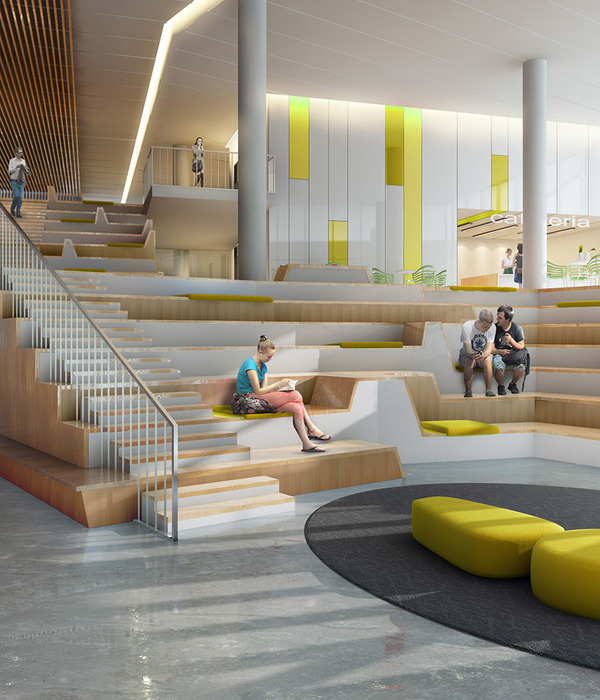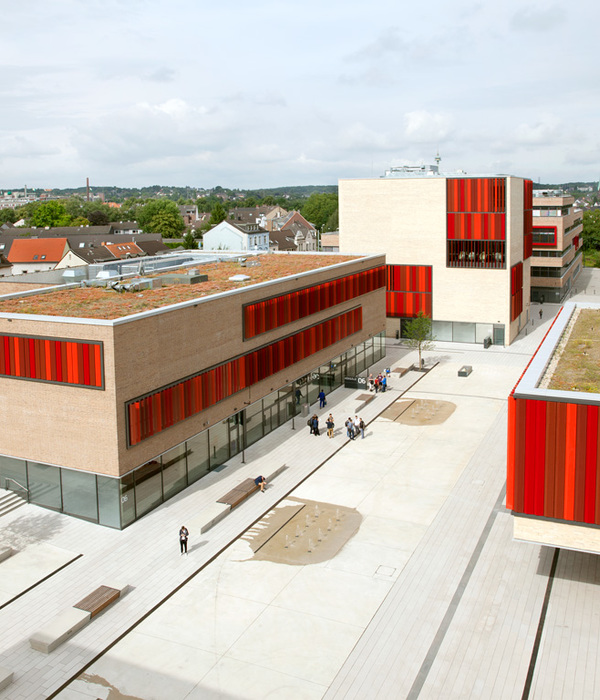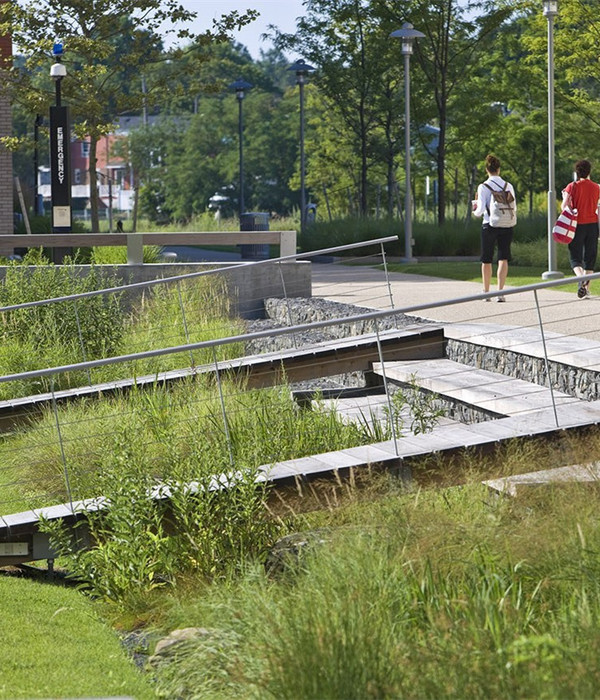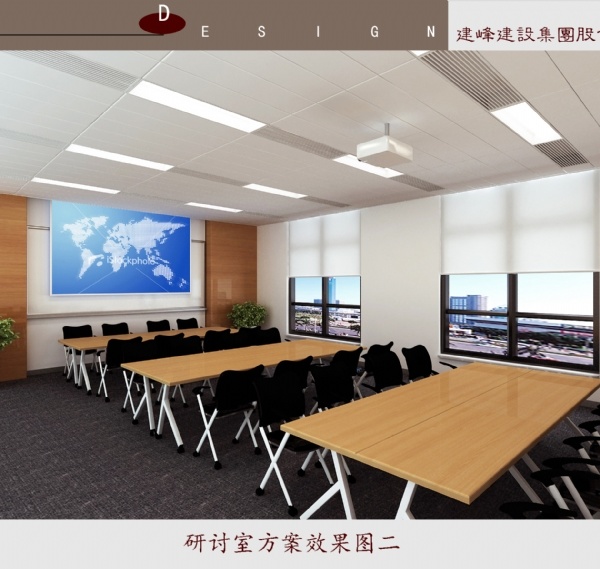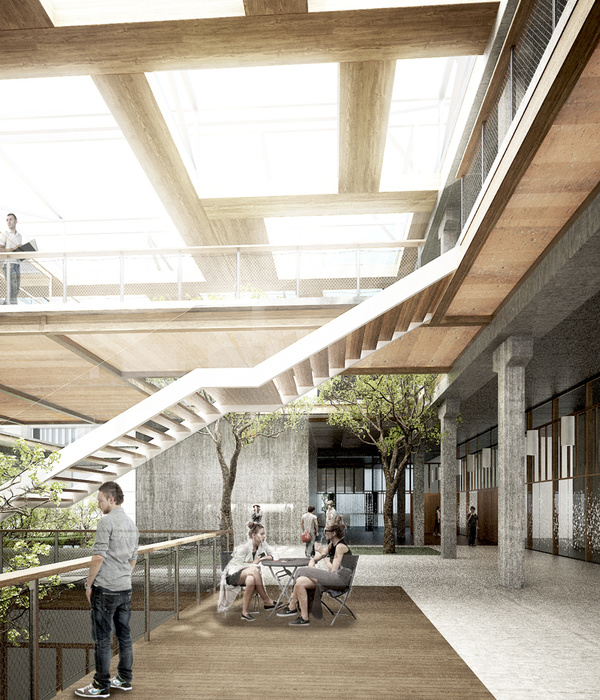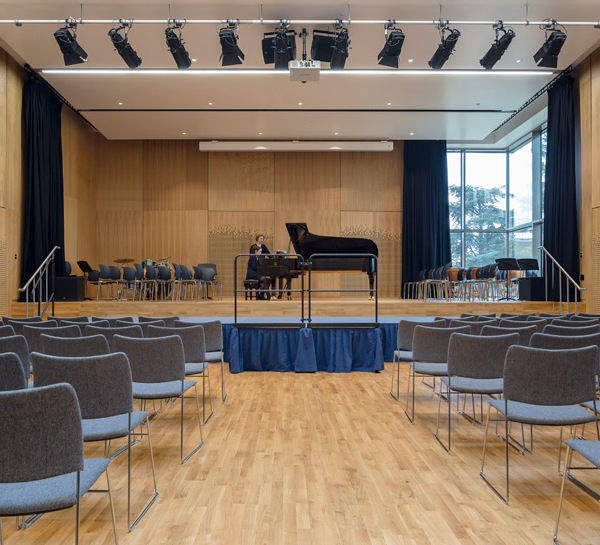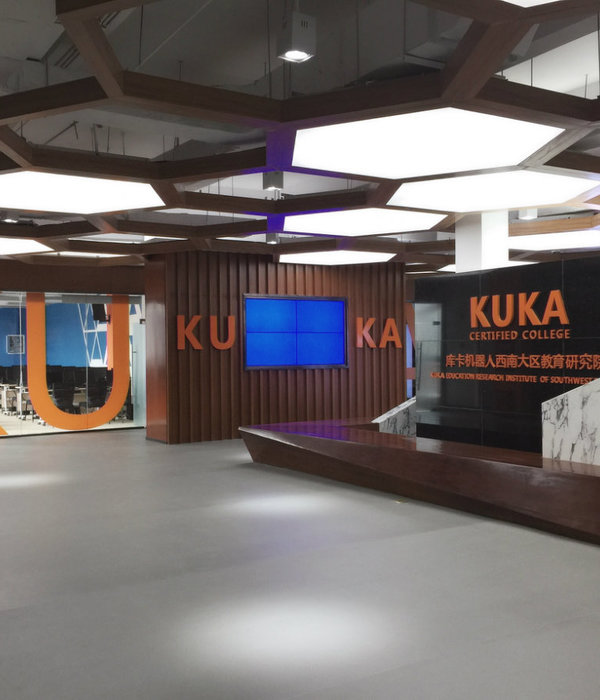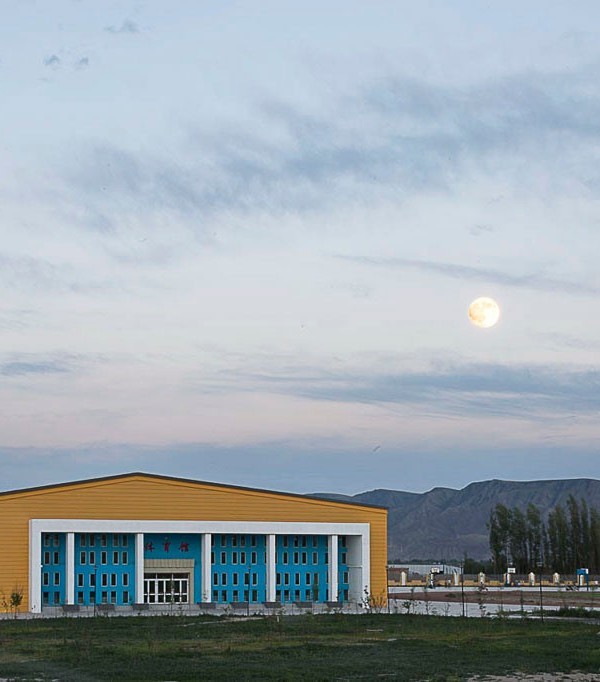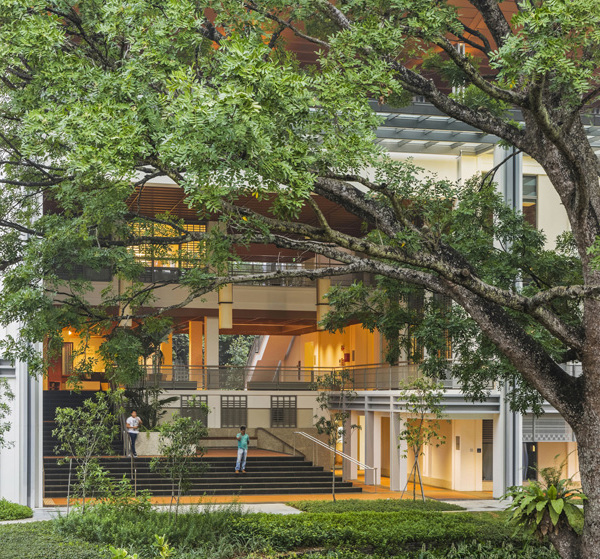© Albert Vecerka
c.阿尔伯特·维塞卡
架构师提供的文本描述。马萨诸塞大学的设计大楼是美国第一座交叉层合木(CLT)学术大楼,也是北美最大的木混凝土复合材料装置。这个耗资5200万美元、87,500平方英尺的项目,通过马萨诸塞州议会的补充资金得以实现,是一个充满活力的交流、合作和实验空间。第一次将大学建筑系、风景园林系、区域规划系、建筑与施工技术学系统一起来,使建筑本身成为具有先见之明的可持续设计的教学工具。
Text description provided by the architects. The Design Building at the University of Massachusetts Amherst is the first Cross Laminated Timber (CLT) academic building in the United States and the largest installation of wood concrete composites in North America. The$52M, 87,500-square-foot project, made possible through supplemental funding from the Massachusetts State Legislature, is a dynamic space of exchange, collaboration, and experiment. Uniting the university’s departments of Architecture, Landscape Architecture and Regional Planning, and the Building and Construction Technology program under one roof for the first time, the structure itself is a teaching tool for prescient sustainable design.
© Albert Vecerka
c.阿尔伯特·维塞卡
Ground Floor Plan
© Albert Vecerka
c.阿尔伯特·维塞卡
这座建筑是围绕着一个滑雪式的中央公域组织起来的,它把学生们聚集在一起进行讲座、展览、演讲和非正式聚会。工作室、制造空间和教室围绕着中央空间,开放到街道上,作为设计学科的展示。公地由一个绿色屋顶覆盖,包括室外学习环境和景观部门的实验空间。
The building is organized around a skylit central commons that brings students together for lectures, exhibits, presentations, and informal gatherings. Studios, maker spaces and classrooms surround the central space that opens onto the street as a showcase for the design disciplines. The commons is capped by a green roof that comprises an outdoor learning environment and experimental space for the landscape department.
示范施工过程本身、胶合木柱和梁、复合材料地板、暴露的交叉层合木板和现浇混凝土,以及大厅的“拉链桁架”(与平衡咨询公司协商开发)都是创新木材工程的典范。
A demonstration of the construction process itself, columns and beams of glue-laminated wood, a floor of composite, exposed cross laminated timber plank and cast in place concrete, and the lobby’s “zipper truss” (developed in consultation with Equilibrium Consulting) all exemplify innovative timber engineering.
© Albert Vecerka
c.阿尔伯特·维塞卡
Axonometric
© Albert Vecerka
c.阿尔伯特·维塞卡
这栋建筑的高效外壳是铜色的,阳极化的铝板和垂直窗户,显示了该地区森林和树木的颜色和图案。周围环境美化由斯蒂芬辛普森协会广泛使用本地植物和铺路材料。专用机械设备被划分为最佳效率,广泛的玻璃和天窗为建筑物内部提供最大的日光,减少了人工照明的需要。雨水管理将屋顶径流引导到工地顶部的一个“泉水源”,通过生物排水系统和木材大坝将水过滤到该地点的下游,并返回康涅狄格河(Connecticut River)。萨福克是该项目的施工经理,该项目的目标是LEED黄金认证。
The building’s highly-efficient envelope of copper-colored, anodized aluminum panels and vertical windows suggests the colors and patterns of the region’s forests and trees. Surrounding landscaping by Stephen Stimpson Associates makes extensive use of native plants and paving materials. Dedicated mechanical equipment is zoned for optimal efficiency, and extensive glazing and skylights provide maximum daylight to the building’s interior, reducing the need for artificial lighting. Storm water management directs roof runoff to a “spring source” at the top of the site, filtering the water through bio-swales and timber dams to the site’s lower end and back to the Connecticut River. Suffolk was construction manager for the project, which is targeting LEED Gold certification.
© Albert Vecerka
c.阿尔伯特·维塞卡
Architects Leers Weinzapfel Associates
Location Amherst, MA, United States
Category University
Architect in Charge Andrea Leers, Josiah Stevenson, Tom Chung
Lighting Designer Atelier Ten
Landscape Architect Stephen Stimson Associates
Area 87500.0 ft2
Project Year 2017
Photographs Albert Vecerka
Manufacturers Loading...
{{item.text_origin}}


